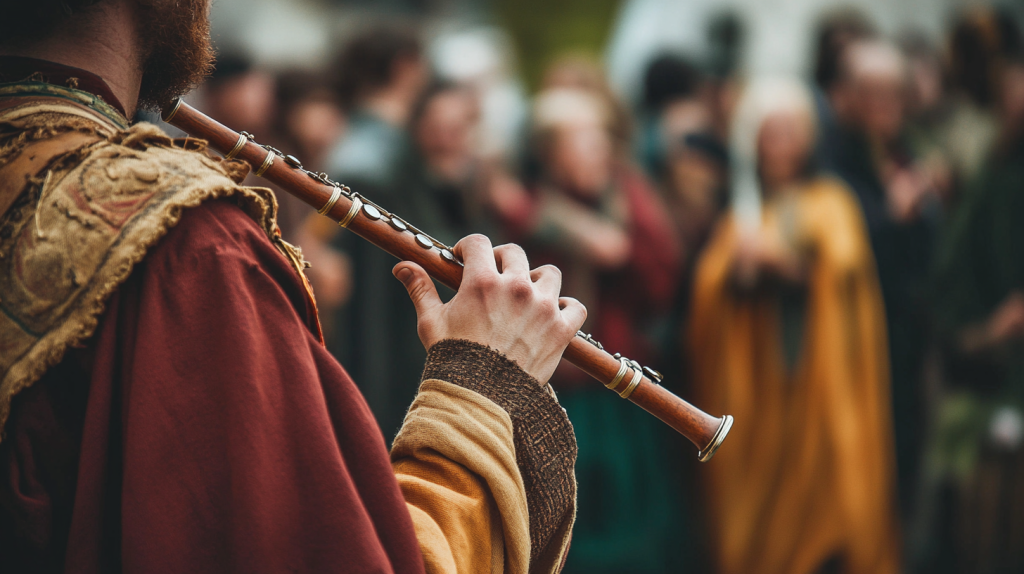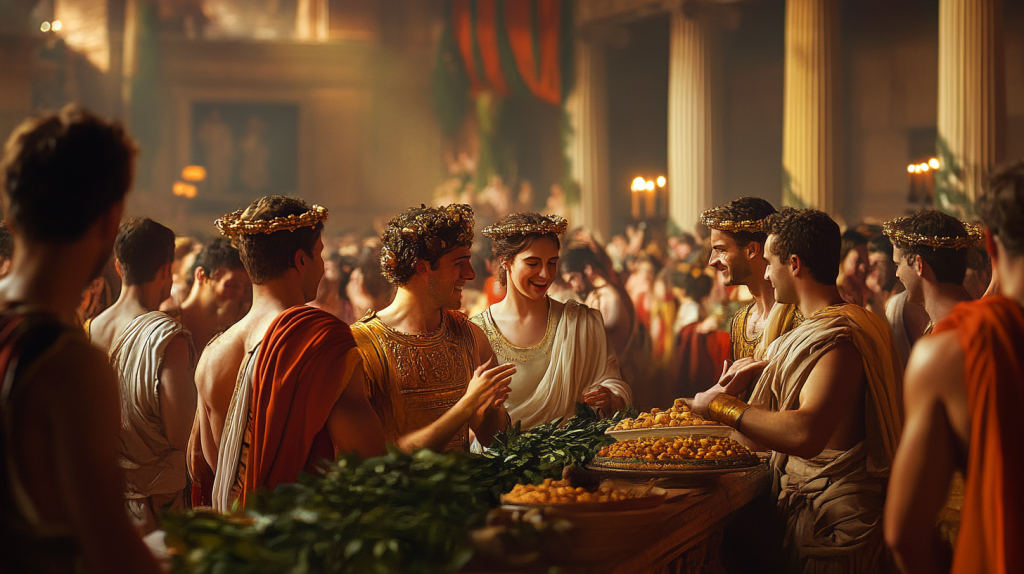The ancient Romans weren’t all about battles, politics, and grand architecture. They knew how to have a good time, too! From wild parties to clever board games, their idea of entertainment might surprise you. They lived life with flair, often combining their love for spectacle, strategy, and socializing into creative pastimes. What’s even more fascinating is how many of these activities echo things we still enjoy today. Let’s take a step back in time and explore the unique ways Romans entertained themselves. Some of these will have you laughing, others might leave you scratching your head—but they’re all unforgettable.
1. Chariot Racing

The roar of the crowd at the Circus Maximus wasn’t for gladiators—it was for charioteers racing at breakneck speeds. Romans loved the thrill of these dangerous competitions, cheering on their favorite teams, which were divided by colors like red, blue, green, and white. Crashes were common and part of the excitement, making the races a mix of skill and chaos.
2. Gladiator Battles

These bloody contests weren’t just about violence—they were an art form and a major social event. Held in grand amphitheaters like the Colosseum, gladiator fights pitted skilled warriors against each other or wild animals. The audience played a role, too, deciding whether the loser would live or die with a simple thumbs up or down.
3. Feasting and Banquets

Romans took eating to the next level with elaborate banquets. These meals could last hours or even days, featuring exotic foods like flamingo tongues and dormice stuffed with nuts and honey. Beyond the food, entertainment like live music, poetry readings, or even acrobats made these feasts unforgettable.
4. Public Baths

Bathhouses weren’t just about getting clean—they were social hubs where Romans could relax, exercise, and catch up on the latest gossip. These spaces often included saunas, pools, libraries, and even restaurants. A visit to the baths was as much about leisure as it was about hygiene.
5. Animal Hunts

Romans loved a good spectacle, and venationes—animal hunts—were a major crowd-pleaser. Held in arenas, these events featured exotic creatures like lions, elephants, and crocodiles. Hunters showed off their skills in dangerous encounters that combined bravery with showmanship.
6. Dice Games

Board games and dice were wildly popular in Roman society. Romans played games like “Tali,” a dice-based game similar to today’s Yahtzee, and “Latrunculi,” a strategic game resembling chess or checkers. These games were played at home or in public spaces, and some even gambled on the outcomes.
7. Theater Performances

Roman theater offered a mix of comedy, tragedy, and satire. Actors wore exaggerated masks to convey emotion, and plays often poked fun at politics or society. Theaters were open-air spaces, and attending a performance was a favorite pastime for people of all classes.
8. Mock Naval Battles

Romans didn’t just build aqueducts—they flooded arenas to stage naval battles, called “naumachiae.” These events recreated famous sea battles, with real ships and warriors fighting it out for spectators. It was a dramatic display of Roman engineering and love of spectacle.
9. Wrestling and Physical Competitions

Athletics were a big part of Roman culture, and wrestling was a favorite sport. It wasn’t just for professionals—ordinary people participated, too. These matches combined skill, strength, and strategy, and they were often part of larger festivals or celebrations.
10. Poetry and Storytelling

Romans cherished good stories and poems, often gathering to hear recitations from talented orators or poets. Famous writers like Ovid and Virgil might read their latest works, or everyday citizens might tell tales at social gatherings. It was a creative and intellectual way to connect.
11. Drinking Games

The Romans enjoyed their wine, and drinking games were a common feature of parties. One popular game, “symposium,” involved throwing the dregs of wine at a target to test accuracy. These games added a playful twist to the social aspects of Roman dining.
12. Exotic Pet Keeping

Some wealthy Romans loved owning exotic pets like monkeys, parrots, or even cheetahs. These animals were a symbol of status and added an extra flair to their villas. Pet-keeping was more than a hobby—it was a way to show off wealth and taste.
13. Watching Executions

Public executions were a grim form of entertainment, often held in arenas alongside other events. The methods could be brutal, designed to send a clear message to the crowd. As uncomfortable as it seems today, this was a normal part of Roman life.
14. Dancing and Music

Music and dancing were integral to Roman celebrations, from festivals to private gatherings. Instruments like flutes, lyres, and drums set the tone, while professional dancers performed elaborate routines. Even ordinary Romans joined in during public festivals, adding joy and rhythm to their lives.
15. Festivals and Carnivals

Roman festivals were colorful, noisy, and full of life. Events like Saturnalia, a midwinter celebration, flipped social norms by allowing slaves and masters to switch roles for a day. These festivals combined feasting, games, parades, and religious ceremonies into one big, joyful experience.
15 Historical Mysteries That Still Baffle Experts Today

Will the final resting place of Cleopatra and the secrets of the Ark of the Covenant ever surface? The unresolved threads of history, from the identity of JFK’s assassin to the fate of the crew of the Mary Celeste, are as intriguing as they are elusive. Experts have tackled many of these mysteries for hundreds of years, and they’re still baffled.
Read More: 15 Historical Mysteries That Still Baffle Experts Today
10 Pyramids You Didn’t Know Existed (Surprise — They’re Not All In Egypt)

While the Egyptian pyramids are certainly impressive structures, they are not the only pyramids in the world. From Mexico to Sudan to Bosnia and Herzegovina, there are many other pyramids that are just as fascinating and worth visiting. These pyramids are a testament to the ingenuity and creativity of ancient civilizations and remind us of our world’s rich cultural heritage.
Read More: 10 Pyramids You Didn’t Know Existed
Ellen has been obsessed with logic puzzles, jigsaws, and cryptograms since she was a kid. After learning she was taught how to play chess wrong by a family friend (so they could win), she joined her school chess club and the rest is history.


